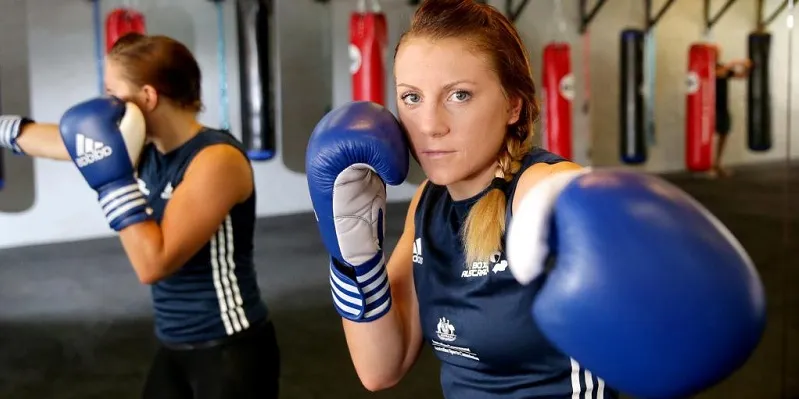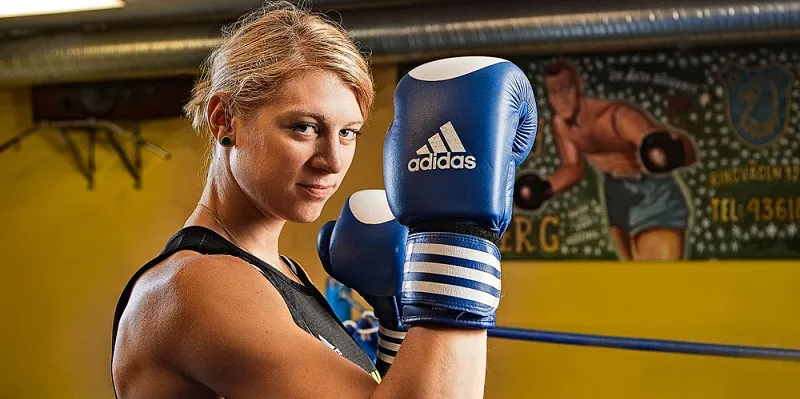Sexism, sneers, and sniggers — women boxers knock down barriers, one punch at a time
Women boxers at the Rio Olympics share that they are still subjected to gender discrimination, but add that they are positive about the change.
The London 2012 Olympics was a landmark moment for women’s boxing as the sport made its debut, with three champions etching their names in history books. Claressa Shields‘ middleweight gold was the only bright spot for America’s usually potent boxing team, after the men failed to win a single medal in London. But while the then-17-year-old Shields made headlines in the United States at the time and spoke optimistically of inspiring a generation of women boxers, she soon found that the fame and sponsorships she had expected failed to materialise.

She said ahead of her first bout in Rio on Wednesday that,
After the 2012 Olympics I went without getting endorsements for the first three years, in those three years I had a lot of time to think and rediscover myself. As far as boxing goes, we are just not getting on that platform to where we’re getting some recognition. The best female boxers need to be on that platform to where we can get that recognition and just get the same equal treatment as the men.
Jennifer Chieng, 30, a lightweight who represents Micronesia but was born in the US and lives in Brooklyn, says she often gets condescending reactions when she tells people she is a full-time boxer. Chieng, a mother of one who put her career in finance in Manhattan on hold to chase her Olympic dream, said,
I usually just get brushed off, when people ask me what I do and I tell them, they are like, ‘Oh, umm, cool’, but it is not my job to have to explain myself

Chieng may have lost out on her Olympic debut, but she sees it as her mission to increase the popularity of women’s boxing, and not be put off by those who disparage her.
To the fans and the people who appreciate and love the sport, especially for the younger generation of women who may want to get into it, I want to encourage them and say, ‘You know what? Whatever negative vibes you get from people, just ignore it.’
Also read : What Muhammad Ali, the silver-tongued boxing champion, taught the world
Despite that, several women boxers in Rio said that attitudes are slowly changing. Australia’s Shelley Watts is a strong defender of women’s right to box but says that stereotypes of how a female should behave start early in life, when it is seen as acceptable for boys to fight playfully but not for girls. Watts, who runs an initiative with netball player Sharni Layton called ‘Strong Chicks’ to help empower Australian women said,
I think those old stereotypes are changing but it’s just going to be slow, and I think that’s normal in a society

Anna Laurell, 36, is one of the most experienced women boxers in Rio and has seen some encouraging changes over the years. Swede told AFP after defeat in Rio to end her Olympic aspirations,
I’ve been boxing since 1997. When I started, boys, men and old men came to me and said, ‘You shouldn’t be boxing, girls shouldn’t be boxing,’ but a lot of that has changed. The sport has changed a lot and we do get a lot more respect now, especially since we are in the Olympics.

But she also identified with Chieng, saying that still too often people dismiss her boxing career as something merely “fun”.
I don’t think they realise how good we are, I think they think it’s just a kind of boxing exercise to keep fit. But to me, it’s my life, I’ve built my whole life around this.







